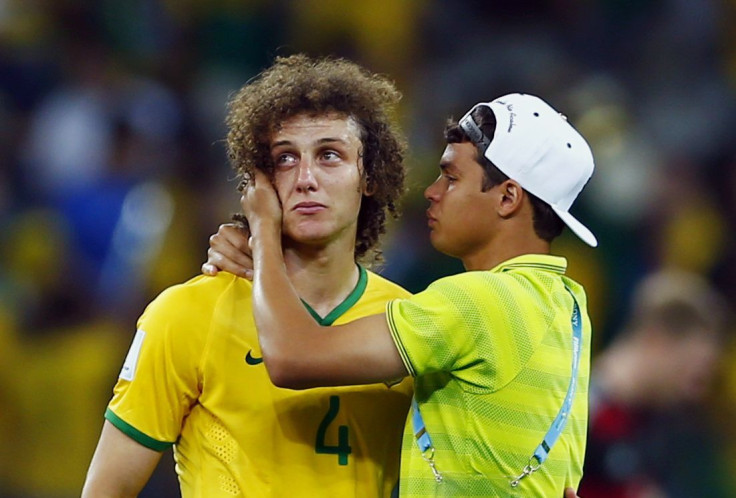World Cup 2014: 3rd Place Game Features Brazil vs. Netherlands, But Should We Care?

One day before the biggest match in soccer, one that every player dreams of taking part in from the day their feet first graces a ball, comes a game that no one wants to be involved in. While the victors of the semifinals head to the famed Maracanã to play for the title of World champions, the losers are forced to battle it out for the hollow triumph of third place before finally being allowed to slink off home.
True, it's not always this way. Often the World Cup has featured one or more surprise semifinalist for which, although falling short of the final, there's much to celebrate in an extra game.
This was the case when Croatia reached the last four in 1998, less than a decade after their first match as an independent nation. Or when one of the biggest surprise semifinalists of all time, South Korea, rode a wave of home support in 2002. There was also the 1994 match when Sweden and Bulgaria commemorated their fine runs to the latter stages with a match in front of a still-record crowd for a third place playoff of more than 91,000 at the Rose Bowl in Pasadena, California.
Lesser soccer nations might also be more intent on putting on a performance to garner the $2 million more in prize money that comes from the difference of finishing third as opposed to fourth.
Now, hands up, how many can remember the outcome of those matches. No? Thought not. The fact is, unlike the Olympics, when a bronze medal earns a place on the podium and genuine recognition for a lifetime’s work, there's no such acclaim or place in history for a team that finishes third at the World Cup.
Many dismissed the third-place game from the outset. In the inaugural World Cup in 1930, the U.S. earned third place when Yugoslavia refused to participate.
There are winners, runners-up and simply losing semifinalists. Attempts by some to rank every team in the tournament are even more frivolous than the need to differentiate between third and fourth place, but at least it doesn’t involve a meaningless 90 minutes.
Saturday’s affair promises to be not one just one of the most futile third-place playoffs, but one of the most mournful. There will be no semblance of solace for whoever comes out on top between Brazil and the Netherlands. For Brazil, it could be little more than a public flogging. Several players already faced boos from their own fans during a historic 7-1 humiliation at the hands of Germany in the semifinals, and the prospect of having to take to the pitch once again just five days later is surely galling.
Having fallen short of getting another opportunity to finally win the World Cup in the most agonizing of manners -- a penalty shootout -- the Netherlands will want little to do with the match, either. Indeed, their coach has had no qualms about admitting as much.
“I think this match should never be played and I've been saying this for 10 years,” Louis van Gaal said after his team had been defeated by Argentina.
“But the worst thing is, I believe that chances are that you lose twice in a row. And a tournament in which you've played so marvelously well, you would go home as a loser just because you could possibly have lost the last two matches, and this has got nothing to do with sports in my view.
“There is only one award that counts and that is becoming world champion.”
Yet, while meaningless, the match can skew tournament statistics that do hold historical significance. Chiefly, it provides an extra match, one that's traditionally a free-scoring affair of little intensity, for a player to enhance their goal-scoring tally. Four players in history -- Thomas Müller in 2010, Davor Šuker in 1998, Toto Schillaci in 1990 and Leônidas in 1938 -- have got goals in a third-place game that earned them the coveted Golden Boot award.
FIFA has a pervasive reason to keep the tradition of the game going: more revenue. It's one more match for which to sell tickets -- Saturday’s event will be held at the 69,000 capacity Estádio Nacional in Brazilian capital Brasília -- and another game to offer up to television companies for advertising revenue.
While many will forget the outcome shortly after all the true tension and history-making of the final fills our minds, there's a good chance a majority of World Cup enthusiasts will be tuning in.
After 62 matches and 30 days of our lives revolving around and being gripped by this festival of soccer, there are now just two days and two games left before the circus packs up and leaves an appetite that won’t quite be satiated again for another four years.
© Copyright IBTimes 2024. All rights reserved.





















